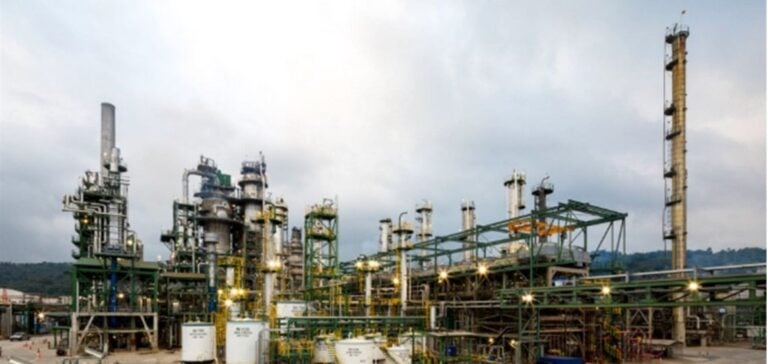Ecuador is facing a significant rise in imports of refined oil products. This trend is attributed to challenges encountered in its refining infrastructure, particularly at the Esmeraldas refinery, the country’s main facility. Recent data highlights that this increase primarily involves diesel and gasoline.
In September, imports of refined products reached 4.1 million barrels, steadily rising to 5 million barrels in October, 5.2 million in November, and 3.7 million at the start of December. This figure may increase further by the end of the month, reflecting the structural difficulties faced by local refineries.
Impact of Extended Maintenance
The Esmeraldas refinery, with a capacity of 110,000 barrels per day and a Nelson Complexity Index of 6.36, saw its utilization rate drop to 32% in August and 43% in October. A prolonged 65-day maintenance period has further aggravated the situation, directly impacting national fuel production.
According to forecasts by S&P Global Commodity Insights, total refinery throughput in Ecuador is expected to decrease by 13.4% in 2024 compared to 2023. These operational constraints underscore the country’s growing reliance on imports.
International Market and Regional Context
Refining challenges are not unique to Ecuador. Several Latin American countries are also experiencing increased demand for imported fuels. This dynamic is putting pressure on international markets. ULSD (ultra-low-sulfur diesel) cargoes bound for Ecuador were recently assessed at $86.89 per barrel, marking a decrease from the $93.37 peak observed on November 21.
Meanwhile, fuel exports from the U.S. Gulf Coast (USGC) are meeting this growing demand, but availability remains tight. Jet-A cargoes have seen their prices rise to $2.091 per gallon as of December 9, reflecting market adjustments to the heightened needs of Latin America.
Economic and Strategic Implications
This growing dependence on imports weighs on Ecuador’s public finances, but it also highlights the need to modernize its refining infrastructure. With fluctuating prices and sustained regional demand, the current situation emphasizes the importance of long-term strategic planning to ensure the country’s energy security.





















